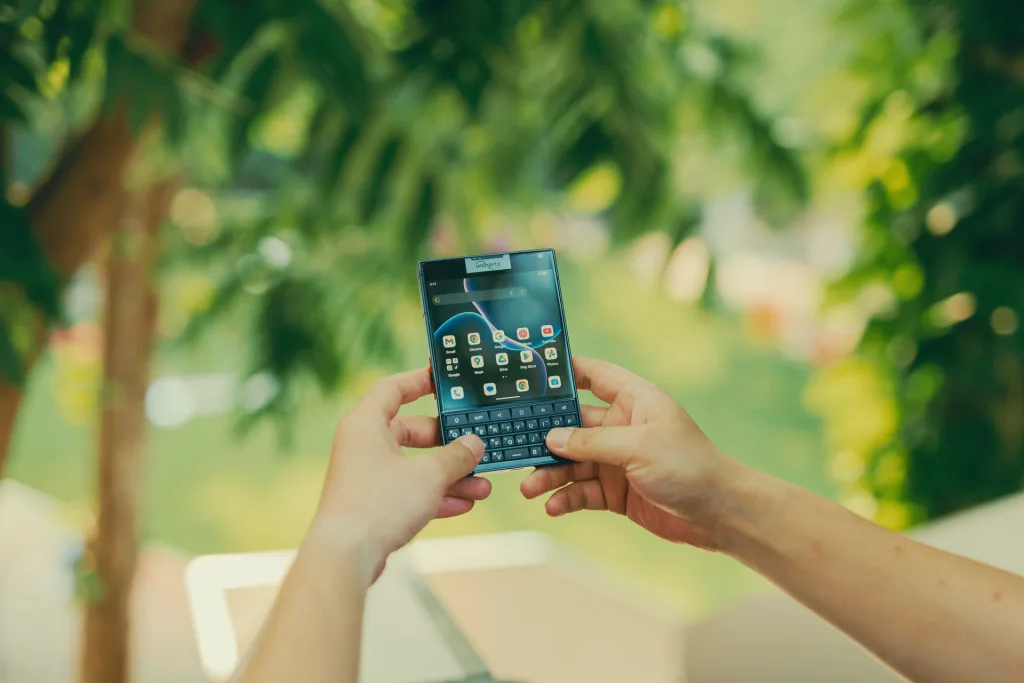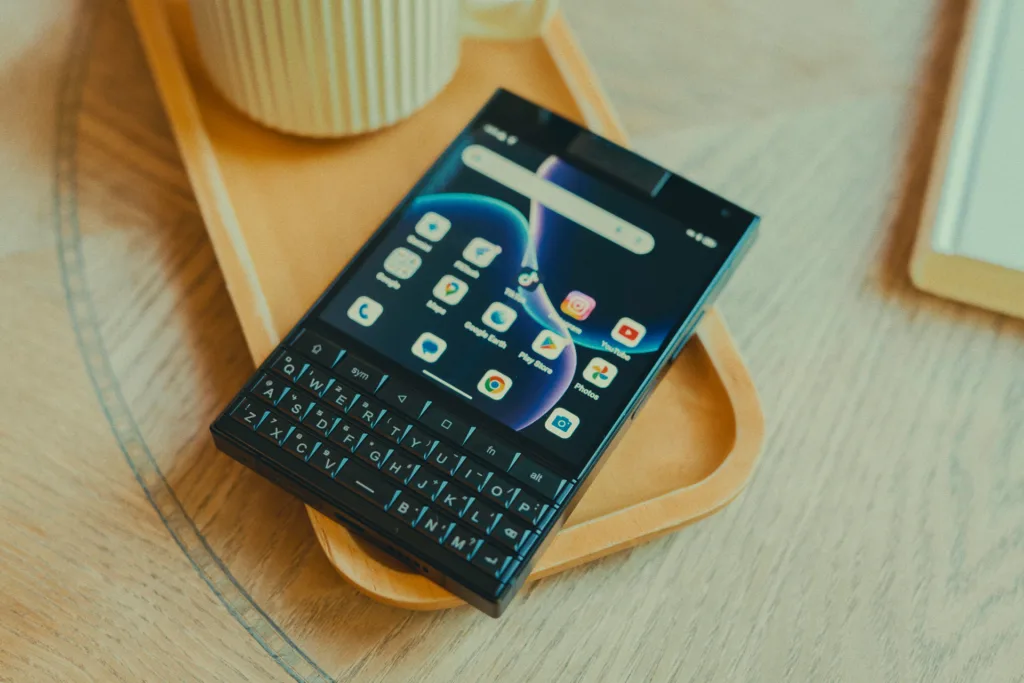It seems the market has spoken when it comes to phones with physical keyboards. BlackBerry exited the mobile hardware business almost a decade ago, and its licensing partners like TCL appear to have given up on the idea as well. For better or worse, the world now largely runs on people typing and swiping words onto glass surfaces.
That doesn’t mean the loss doesn’t sting for the diehards. For some, there’s just no substitute for a physical keyboard—and that’s who Unihertz is hoping to serve with its new Titan 2.
Unihertz is a small company based in China that designs extremely niche smartphones. Sometimes they’ll have tiny screens, like the Jelly line; sometimes they’ll have a rugged build, like the original Titan; sometimes they’ll have both, like the Atom. The Titan 2, which is available to order on Kickstarter now, is the company’s fourth attempt at a phone with a physical keyboard.
A new approach
The Titan 2 takes a different approach to Unihertz’s previous keyboard-equipped phones, however. The design is much sleeker and feels like a better fit for the kind of professional who’s likely to have lingering BlackBerry nostalgia—the original Titan looked more like something you’d take onto an oil rig. This is still a fairly hefty phone, at 10.8 millimeters thick and 235 grams with a boxy metal build. But it feels reassuringly solid rather than excessively rugged. The synthetic leather on the back panel is a nice touch, too.
At $400, or $269 at current early-bird pricing, you can’t expect particularly high-end specs. There’s a MediaTek Dimensity 7300 processor that does the job, and a dual-camera setup that mostly doesn’t. The 12GB of RAM, 512GB of storage, and 5,050mAh battery with 33W charging are all pretty standard.

The screen is really the killer spec here, featuring an unusual 4.5-inch 1440-by-1440 LCD panel. That might not sound huge in an age where iPhones can push 7 inches, but because it’s square—like the BlackBerry Passport—it’s much wider than any conventional smartphone. This makes the Titan 2 great for browsing websites and viewing documents, though it’s less ideal for scrolling through social media. You can switch the screen to a vertical 4:3 window with a swipe gesture, which sacrifices some real estate on the sides but gives a more comfortable experience in apps like X and Instagram.
There’s also a secondary OLED screen on the phone’s back panel, which is largely a gimmick—you can use it with built-in tools like a clock, a compass, or a selfie viewfinder, or add other Android apps yourself to see how they run. If ever you’ve wanted to watch Netflix on a screen the size of an Apple Watch, now you can.
The keyboard
Below the main screen, of course, is the keyboard. I was never much of a BlackBerry addict myself, but I do think the Titan 2’s keyboard feels great to use. The backlit keys are easy to distinguish from one another and give strong tactile feedback; the surface is also touch-sensitive so you can use it to scroll and swipe through apps. There is something of a learning curve to figuring out how to make the most of the keyboard and use the modifier buttons in combination with the letters, but it’s fairly self-explanatory and just takes an hour or two of practice.

One thing I will say about the Titan 2 keyboard is that even after getting used to it, I’m nowhere near as fast as I am on a touchscreen. Former BlackBerry obsessives might take issue with this, but even as someone who never uses autocorrect, I still think I’m a lot faster using swipe-to-type and word prediction on a touchscreen than I could ever be on a keyboard like this.
Tangible feedback
But that doesn’t mean there’s no value to a physical keyboard or no advantage over a touchscreen. I like using manual gearboxes in cars and physical dials on cameras, for example, even though faster automatic solutions exist for both. What they have in common with the Titan 2, or the BlackBerry before it, is the satisfyingly tangible feedback and the sense of intention when you use them. You’re in control.
When you press a key on the Titan 2 keyboard, you know what’s going to happen. You can feel that you pressed it and see the letter pop up right away. There’s no prediction algorithm to mess up your spelling and much less chance to miss your key altogether. I know my typing nets out slower on this phone than it would on any regular smartphone, but I do spend much less time needing to correct my own copy. Typing on the Titan 2 is a deliberate, involved experience with much less frustration.
Not for everyone
This phone clearly isn’t for everyone. The camera is pretty bad and the software is unpolished. I wouldn’t recommend it to anyone who wasn’t really sure that they wanted a physical keyboard, and even then it probably makes more sense as a secondary device.
But for those people—the people who held out longer than anyone else before giving up their BlackBerry—the Titan 2 might just end up as their favorite phone in the world today. It’s clearly Unihertz’s best take on the concept yet, and no one else is really trying to compete.
Войдите, чтобы добавить комментарий
Другие сообщения в этой группе

Years ago, I spent a lot of time making the case for why IT mattered in large enterprises. It’s fair to say the landscape has changed—dramatically.
Where I once had to argue for IT’s str


Douglas Rushkoff, the writer and media theorist who chronicled the countercultural spirit of early ’90s online culture in books like

The internet-famous TikTok account Sylvanian Drama is now at the center of a real-

Yet another CEO in the artificial intelligence space is warning that m

A Mississippi law that requires social media users to verify their ages can go into effect, a f

The IT company CEO captured in a widely circulated video showing him
